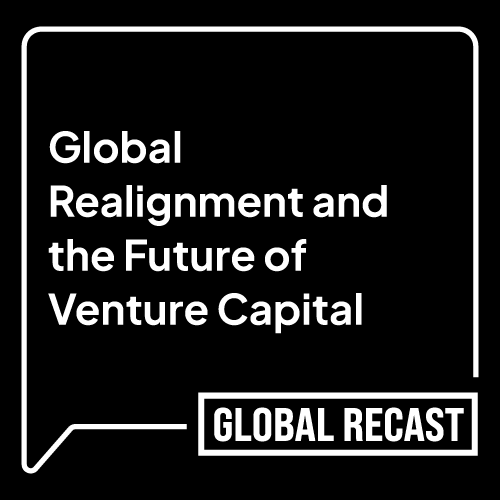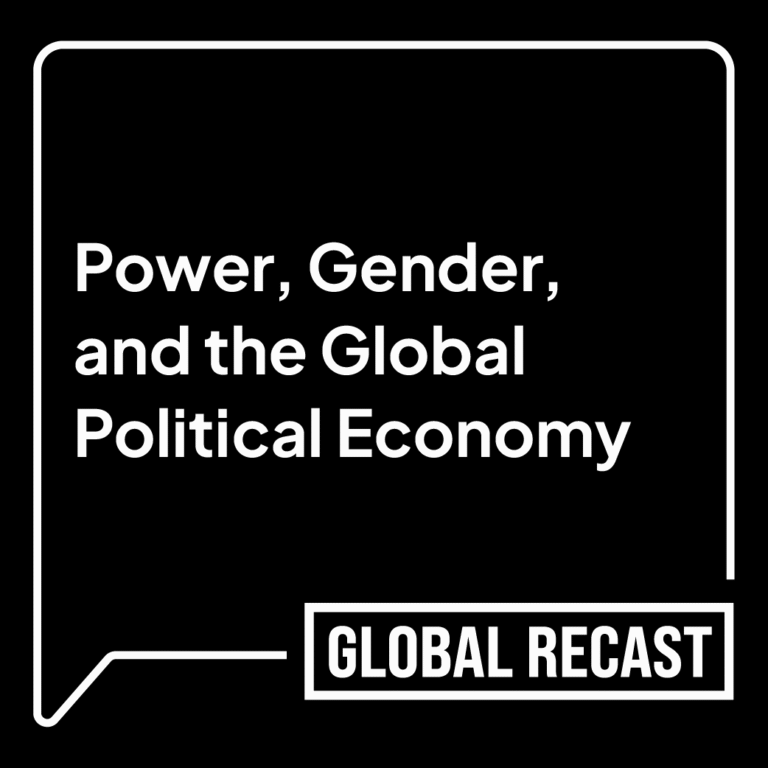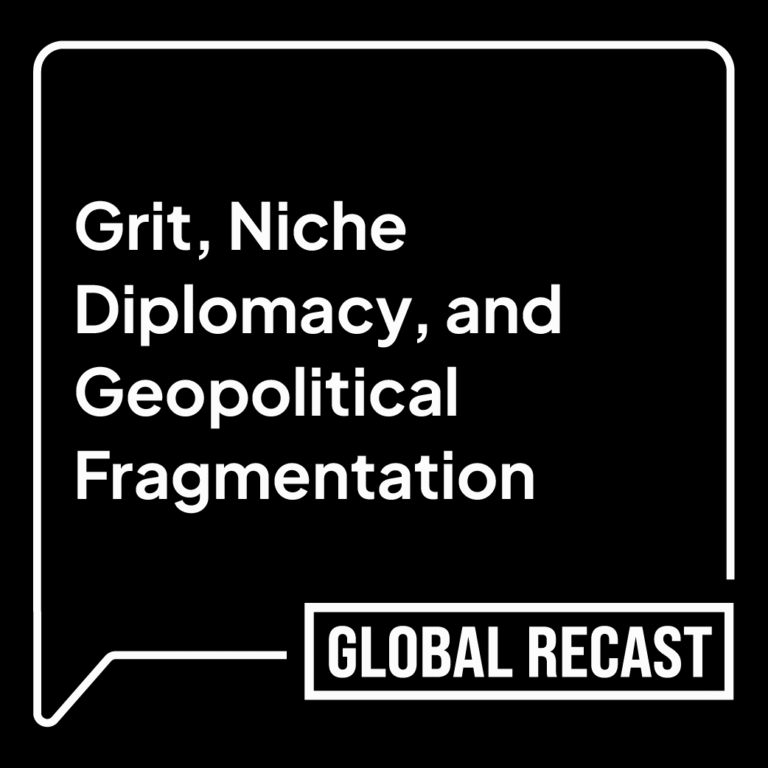EPISODES

Episode 1
Global Realignment and the Future of Venture Capital
As the global economy splinters into competing blocs, with the world’s economic centre of gravity increasingly shifting towards Asia — particularly China and India — private equity and venture capital investing is also witnessing significant change in the context of the concomitant economic, political, and technological shifts. Many in the Global South are calling for an overhaul of the global financial system, while inward-looking policies are gaining popularity in much of the Global North. Clearly, the evolving global landscape will shape private capital allocation for decades to come. How may this impact north-south capital flows?

Episode 2
Power, Gender, and the Global Political Economy
For centuries, the gendered distribution of political and economic power — nationally and globally — has been skewed toward men. Women continue to battle gender stereotypes in their political, academic, corporate, and entrepreneurial pursuits. No doubt, the ongoing global economic shift has created both opportunities and challenges for women in different parts of the world. While some have benefited from globalization and technological advances, many others continue to face systemic barriers that hinder their access to power and economic mobility. Despite significant progress, achieving gender parity on multiple fronts remains elusive. Is there a global North–South divide? Or a left-right dimension?

Episode 3
Grit, Niche Diplomacy, and Geopolitical Fragmentation
With the collapse of bipolarity after the Cold War, the US assumed global dominance for decades as the sole superpower. Although the US and China are still competing fiercely for global governance and economic power, in the post-Cold War era, most, if not all, middle powers appear to have settled for niche diplomacy. With multiple power centres and rising regional tensions, smaller states are increasingly honing and leveraging their niche areas of expertise and influence to remain relevant and forge alliances with both superpowers and great powers. Under this configuration, how realistic is it for a quintessential small open economy like Canada to outperform middle-power peers like Australia? Or even great powers like France and the UK?

Episode 4
Digital Capitalism, Global Leadership, and the AI Race
One of the most urgent dilemmas in digital capitalism is how to foster innovation without entrenching dominance. Striking the right balance between competition and contestability in the global innovation and AI race is a core issue at the intersection of technology governance, economic policy, and ethics. Competition drives innovation and investment, but in practice, we are witnessing a dual dynamic: capital concentration and automation-led productivity gains are reinforcing the dominance of a few “superstar firms”—particularly those in Big Tech. The very forces driving innovation are also eroding the contestability of AI markets. The AI race doesn’t have to be a zero-sum game. Fostering innovation without enabling the concentration of power is essential for ensuring that dominance does not undermine the democratic oversight of critical technologies like AI. With smart governance, we can maintain the innovation benefits of competition while ensuring markets remain contestable, inclusive, and aligned with the public good. How do we achieve a balance?

Episode 5
Globalism and Cipolla’s Five Laws of Human Stupidity
Carlo Cipolla’s classification of human behavior into four categories—intelligent, bandit, helpless, and stupid—provides a powerful lens for understanding how the global political economy functions, fails, and evolves. His emphasis on self-harming behavior that also harms others is especially relevant for explaining global economic tensions, institutional crises, and the fragility of current interdependent systems. Cipolla’s core insight that actors who unintentionally harm both others and themselves exert outsized negative influence has powerful implications. These implications come from how states, firms, and institutions behave under uncertainty, misaligned incentives, and incomplete information.

Episode 6
Disruptive Global Supply Chains and Balancing Forces
Global supply chains are undergoing a profound transformation, driven by geopolitical tensions, economic realignments, and a redefinition of risk. Traditional globalization models based largely on cost arbitrage, open markets, and minimal inventories are rapidly giving way to a new paradigm that prioritizes resilience, security, and strategic alignment. As tariffs reprice global trade flows, techno-nationalism is decoupling key sectors such as semiconductors, pharmaceuticals, critical minerals, and automotive technologies. No longer are nations optimizing solely for cost — resilience, geopolitical alignment, and adaptability have become equally vital. In the face of global fragmentation, regional trade agreements and digital technologies are acting as balancing forces. While the ongoing reconfiguration of supply chains is not inherently biased against the Global South, gains are not automatic either. In the final analysis, countries that invest in capacity-building, embrace regionalism, and align with emerging trade norms stand to benefit. Those that lag risk being left behind in a more fragmented, security-conscious world economy.
